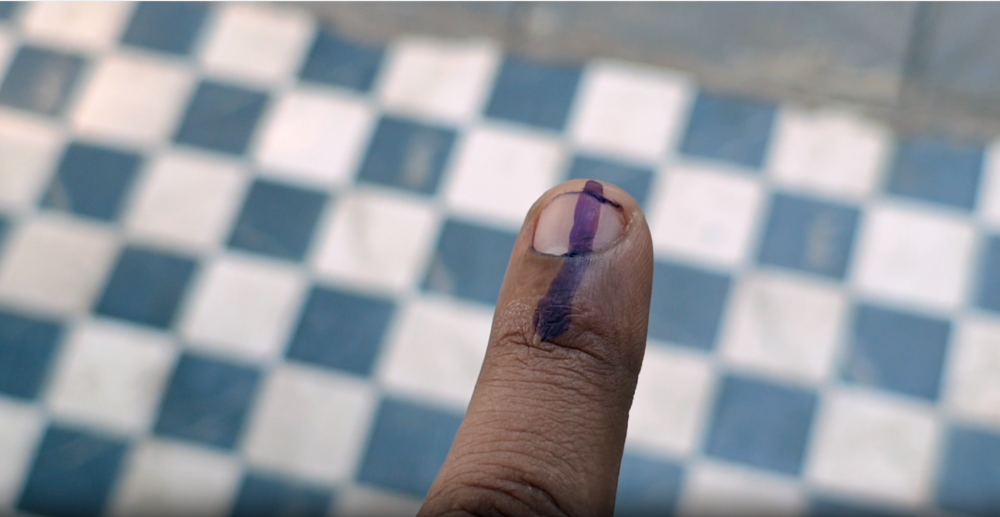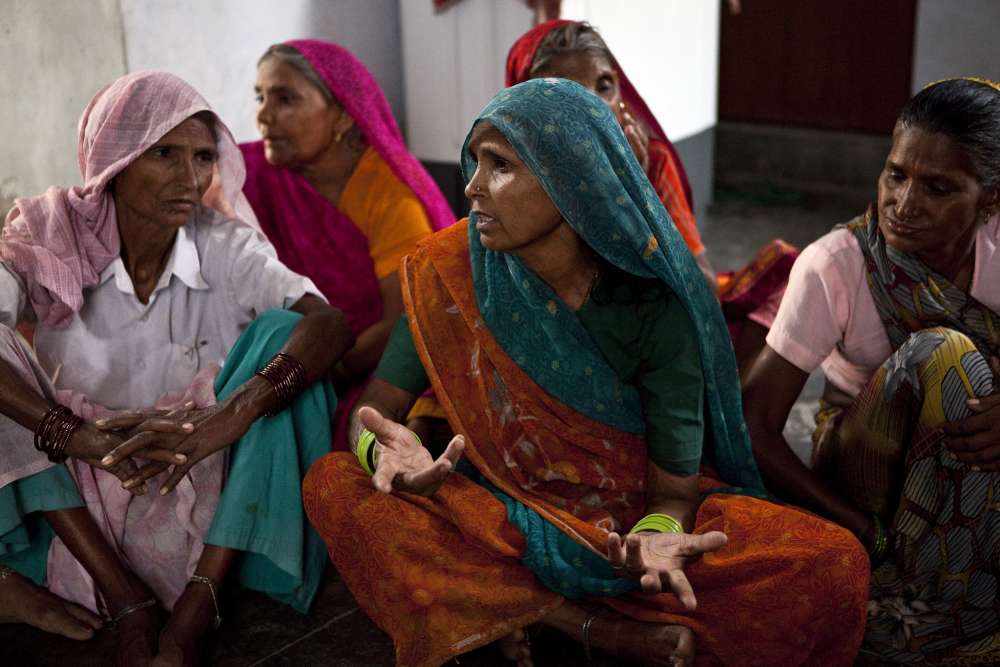Will China Dare Challenge the Universal Declaration of Human Rights?

On December 10, the Universal Declaration of Human Rights (UDHR) turns 70. The seminal document laid the foundations for a global normative order, but for how much longer will this last? The UDHR has some powerful enemies, including the People’s Republic of China.
Of course it has influential supporters, among them Germany’s president. Last week Frank-Walter Steinmeier praised the declaration in a speech at Sichuan University in Chengdu, China. He called it a “milestone and [an] auspicious moment from the past” and said: “My urgent advice is that we cannot undermine or abandon what we have agreed together. We live in an era of interconnectedness and mutual dependence. We need this joint basis more urgently than ever, partly because I am afraid that we would not manage to achieve something like this again today.”
The German president had reasons to make this plea in China for it is only a matter of time before the People’s Republic tries to replace human rights with an alternative normative idea. In other policy areas, China has long since established institutions of its own with a claim to global leadership. Why would party strategists stop at international human rights institutions?
The Chinese single-party state, which knows and fears the power of ideas, would see that as a mistake, one that it does not intend to make. Its Propaganda Department (renamed Publicity Department) has been working for more than 25 years to refute human rights criticism from abroad as illegitimate or uninformed.
In view of China’s systematic human rights violations, this is a Sisyphean task. So every good party state servant will now look for a more sustainable solution: launching a new global narrative that can displace human rights. The occasion of the 70th anniversary of the Universal Declaration of Human Rights could be the moment: the signs are accumulating.
In September 2015 China’s president, Xi Jinping, presented his vision of a “Community with Shared Future for Mankind” to the UN General Assembly. In January 2017 he gave a detailed speech on the subject in Geneva. In his new community, there would be peace, security, prosperity, openness, respect, inclusion, cleanliness, beauty, and harmony. Humanity would grow to be one big family and the desire of all for a good life would be realized. At the same time, the absolute sovereignty of each state in this community would have to be accepted and cultural and political differences tolerated. According to Chinese state media, Xi Jinping’s approach brought “enlightenment” to the world community at a time of global challenges, growing insecurity and destabilizing factors.
Since then, Xi Jinping has brought this “enlightened” view to many international forums. His apparatchiks managed to incorporate the concept into several UN resolutions, from the Economic and Social Council to the Security Council, General Assembly and Human Rights Council. On the website of the China Society for Human Rights Studies – a supposedly independent non-governmental organization, founded by former high-ranking propagandist Zhu Muzhi – you read that Xi Jinping’s vision was shaped by Chinese wisdom and is now a global consensus. These words reflect subservience and megalomania, but also represent a strategic calculation.
At the 70th anniversary of the UDHR, we should not make the mistake of simply dismissing propaganda talk from China as absurd. It cannot be ruled out that 2028 won’t see the international celebration of the 10th anniversary of Xi’s “community,” which might eclipse the birthday of the 1948 human rights declaration. For such a scenario has long been worked on in China.
A Beijing Human Rights Forum has been held every year since 2008 (then just in time for the 60th anniversary of the UDHR). In September 2018, 200 participants from across the world gathered at this forum and discussed poverty reduction and building a community with shared future for mankind. One of the speakers was Bandar bin Mohammed Al-Aiban, president of Saudi Arabia’s Human Rights Commission. As the recent murder of the journalist Jamal Khashoggi reminds us, the Saudi kingdom – like the People’s Republic – does not tolerate critics. So it’s not surprising that in November Al-Aiban trivialised the Khashoggi case in a debate in the UN Human Rights Council. Nor would it be surprising if Saudi Arabia were to join forces with China to replace internationally binding human rights standards with a fog cloud of words such as “community,” “shared future” and “mankind.”
It is not easy to attack the ruling normative order – especially with such a palid slogan. A few years ago, such an attack on human rights would have been unthinkable; and even today it would not be without risk since it could provoke resistance.
Still, anyone poised to lead such an attack will know how to take advantage of the moment. For the old certainties have been shaken, and we are now surrounded by competing narratives. And the key actors are not what they once were. The US has lost its leadership role in human rights and has withdrawn from the UN Human Rights Council. Brazil, with a seat on the Human Rights Council, is no longer a reliable partner for the international protection of human rights: from January 2019 an opponent of human rights will be in charge. The European Union has long found it difficult to stand up to China in the Human Rights Council: today the EU’s member states are more at odds than ever on this.
Around the globe, there is no state of geopolitical weight that could defend the Declaration of Human Rights against an attack from China. Of course, no state would have to do this alone. After all, democracies hold a clear majority among the 47 Member States of the Human Rights Council so it would be possible to form a coalition to protect the UDHR.
But such a coalition is not self-evident; nor would it be easy to build since the People’s Republic has the economic and political means to influence the voting behavior of other countries on the Council. Moreover, China has developed a strategic rhetoric that appeals not only to authoritarian states but also to some democratically governed countries, such as the notion that economic growth is paramount, or that social rights and particularly the so-called right to subsistence ought to be recognized as the most important human right.
China also skillfully exploits the dichotomy of North and South. A year ago the Beijing Declaration was adopted by the First South-South Human Rights Forum, which drew 300 participants from 70 countries. The Beijing declaration imitates the form and style of official UN resolutions, with a relativist interpretation of human rights, and its publication is a powerful tactic since many of today’s UN member states never had the chance to vote on the original human rights declaration.
The Chinese people always had a representation at the UN, though until 1971 the Chinese seat was held by the Republic of China, not the People’s Republic (which also played no role in negotiating the UN’s two main, binding human rights covenants of 1966).
Today, the People’s Republic has a clear interest in replacing the UDHR with a new order and the power to do it. Nothing would be as bitter as this happening on the declaration’s 70th anniversary. As Eleanor Roosevelt pointed out in 1948: “Democracy, freedom, human rights have come to have a definite meaning to the people of the world, which we must not allow any nation to so change that they are made synonymous with suppression and dictatorship.”
The German president is right to say it would be difficult to negotiate the UDHR in today’s circumstances. For Xi Jinping, it is this reality that looks like a favorable window of opportunity.
For those who seek to undermine the ideational power of universal human rights, now is the time to act against the UDHR.
The future cannot be foreseen, but we must learn lessons from the illiberal and authoritarian advance of recent years. The first insight is that neither dominant values nor the law are immune from attack. Secondly, such attacks are preceded by preparation, they do not happen overnight. Thirdly, those who allow themselves to be surprised by attacks find it difficult to defend themselves. Human rights activists and democrats are better off anticipating attacks that ultimately do not occur than risk being surprised by those that do.
Perhaps the People’s Republic will take a little more time before launching an attempt to replace the Universal Declaration of Human Rights. Beijing could also choose a different format for this operation, not an old-fashioned UN-style international declaration. Who knows, the Chinese president could simply invite member states of the
“Community with Shared Future for Mankind” to join the Chinese social credit system so that they too can educate their citizens and institutions towards harmonious behavior.
With a little luck, the PRC will refrain from advancing a revisionist project on International Human Rights Day and we will not be in a state of shock when celebrating this year’s 70th anniversary of the Universal Declaration of Human Rights. Yet this would not be reason for carefree joy, because Xi Jinping’s vision of a new community is not enlightenment. It is a threat to all who value individual freedoms.
…
An abridged version of this commentary was published by Le Monde diplomatique on December 10, 2018. An earlier German version was published by NZZ on December 6, 2018.







